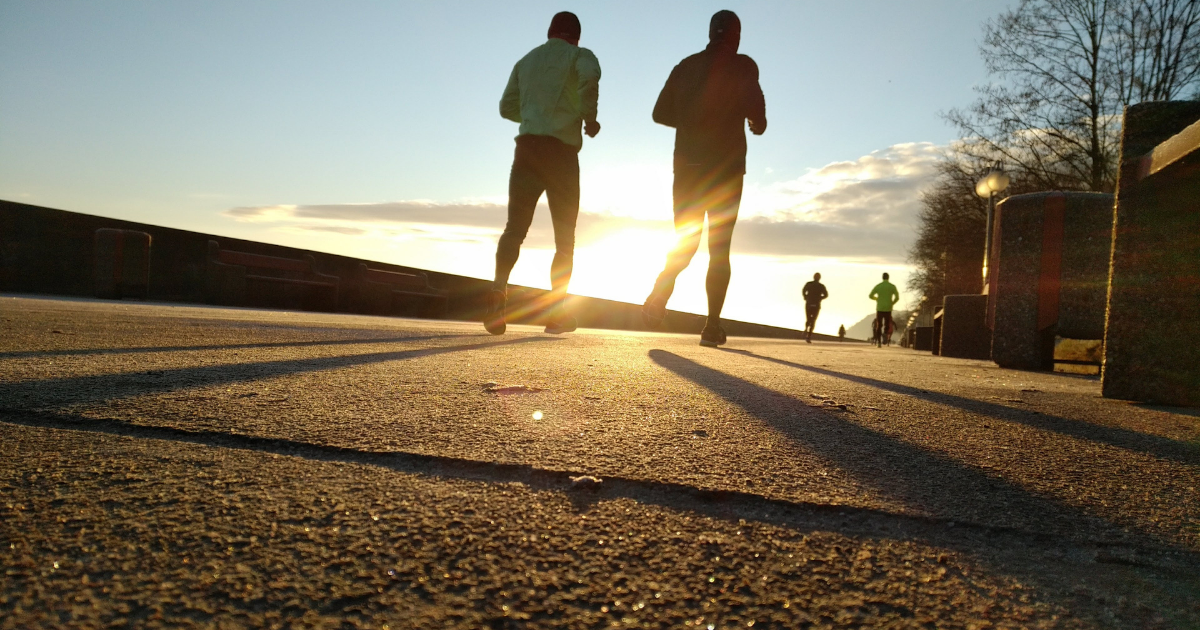Failure is an Option
 Written by: Johann Cardenas, 2nd Year Bioinformatics
Written by: Johann Cardenas, 2nd Year Bioinformatics
Photo by Tomasz Woźniak on Unsplash
In the fall of my senior year of high school, I joined my school’s cross country team for the first time. I was never the most outwardly athletic person - in fact I looked like (and still look like) your stereotypical skinny nerd, complete with the thick-rimmed glasses. Needless to say, I was nervous, but I was excited to improve my running and become part of the team. At this point, you may be expecting some sappy motivational story about a social reject discovering his hidden talent at endurance running and then leading his team to county finals. Unfortunately, life isn’t exactly a Disney Channel original film: it went about as well as one would expect it to go for an unathletic teen joining the team for the first time. But my experience did teach me a valuable lesson on the importance of failure for personal growth.
The first few practices were killer on my soft, unconditioned body. Prior to joining, I ran a few times a week at a comfortable pace. Now I had practice every day after school, . It was hard enough being out of breath and having burning legs, but my self-conscious teenage brain couldn’t help but notice that I was the slowest one at practice. I was embarrassed and wondered whether the sport was right for me, but powered through anyway. Maybe my school just had an above-average team?
As our first meet approached, I was a little nervous. I had this irrational fear of being the slowest one there. That seems ridiculous, right? Sure, I was the slowest on my team, but to be the slowest out of the hundreds of runners in my county? That seemed so unlikely, I was actually looking forward to being faster than someone for a change.
It’s a scramble of limbs and school colours as runners try to race ahead of one another to get a good position. At first, I tried to keep up with the group, but quickly I felt my legs become heavy. I was beginning to lose speed. I tried my best to match their pace, but in excruciating inevitability, I literally saw the entire race pull ahead of me. Soon, I lost sight of them. I was last, dead last.
As I was running in last place, I thought to myself that this is objectively embarrassing and that I should be really, extremely embarrassed right now. I’m normally a competitive person and hold myself to high standards. I pride myself on being seen as someone good or at least average at things, not the worst, so last place should have been devastating. But somehow, it wasn’t. In an almost spiritual enlightenment, I let go of my insecurities and just focused on finishing the race. Finally tasting absolute failure for the first time was freeing: I could literally only get better from that point on, and I was more focused and determined than I ever was before.
I also discovered that failure doesn’t actually feel that bad. My run was nice and scenic without so many other athletes around me. Everyone I passed cheered me on like I was right behind first place, which made me feel good. As soon as I passed the finish line, my coach was there to congratulate me on my first race, as if I didn’t just publicly humiliate my high school. I learned something important about failure: it’s not shameful in the slightest. Once I finished, my coach only asked me if I never stopped running (to which I said yes); I realized it doesn’t matter how fast my pace is, only that I keep on moving.
Despite my newfound enlightenment, I still didn’t automatically become a competent runner. I still finished last place in my next meet, and my placements in the following meets weren’t anything to write home about either.
All of this is to say that my cross country experience wasn’t sunshine and rainbows: it was humiliating, humbling, and physically challenging. However, it was also an experience that contributed significantly to my personal growth. If you only watch those Disney Channel movies, you might think that impressive, against-the-odds victories are the only way things you should be going for. Sometimes though, you need to stare failure right in the face and embrace it. Understand that failure isn’t shameful, but a natural part of growth. Other people are more likely to cheer you on than put you down because most have been there themselves. Once you embrace the possibility of failure, it allows you to focus on the real victories: self-improvement and personal satisfaction.
Bottom line? Don’t be afraid of trying new things because you think you’ll be terrible at them. Remember that it doesn’t matter what your pace is, only that you keep on moving.
Published on

